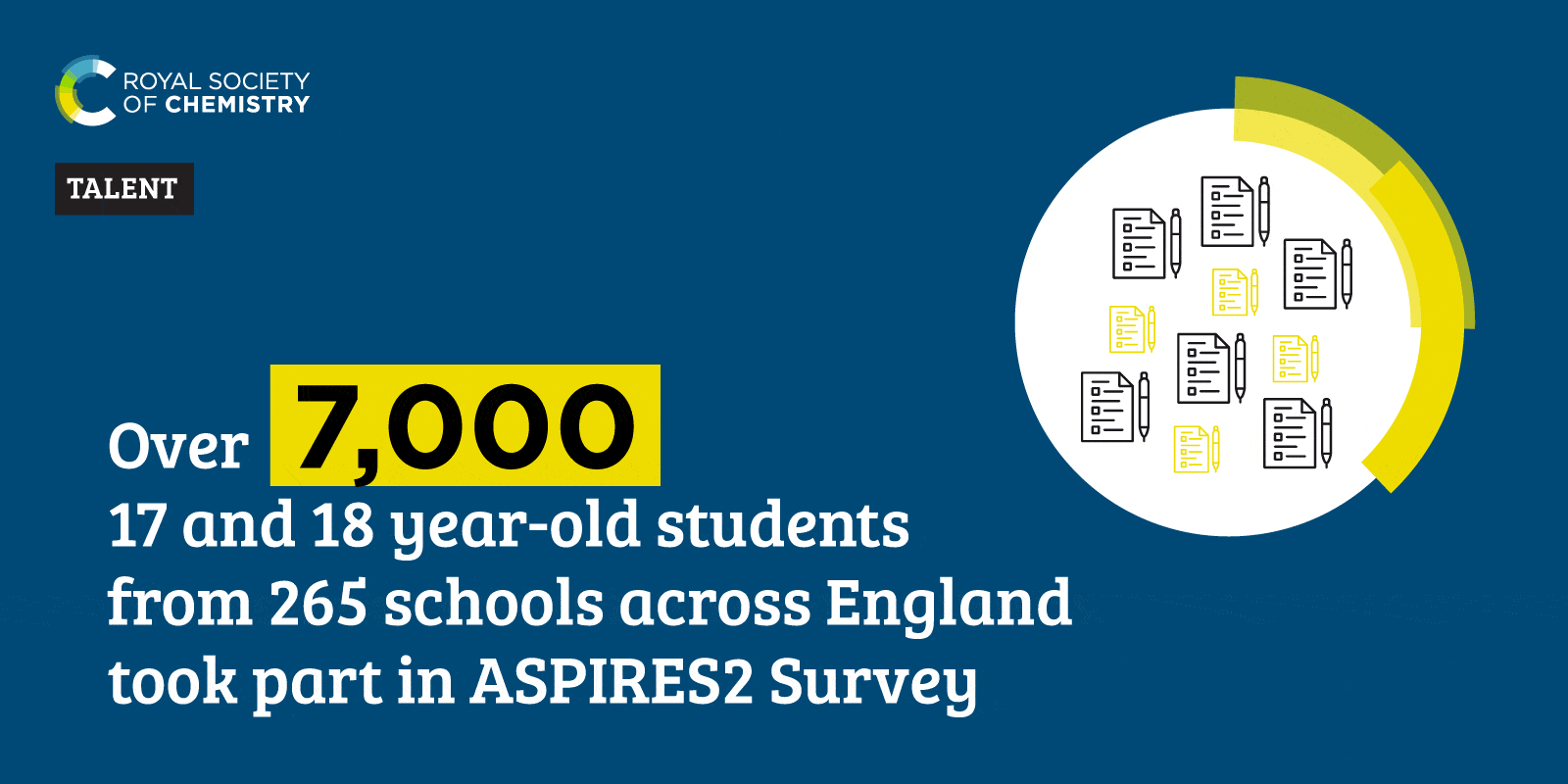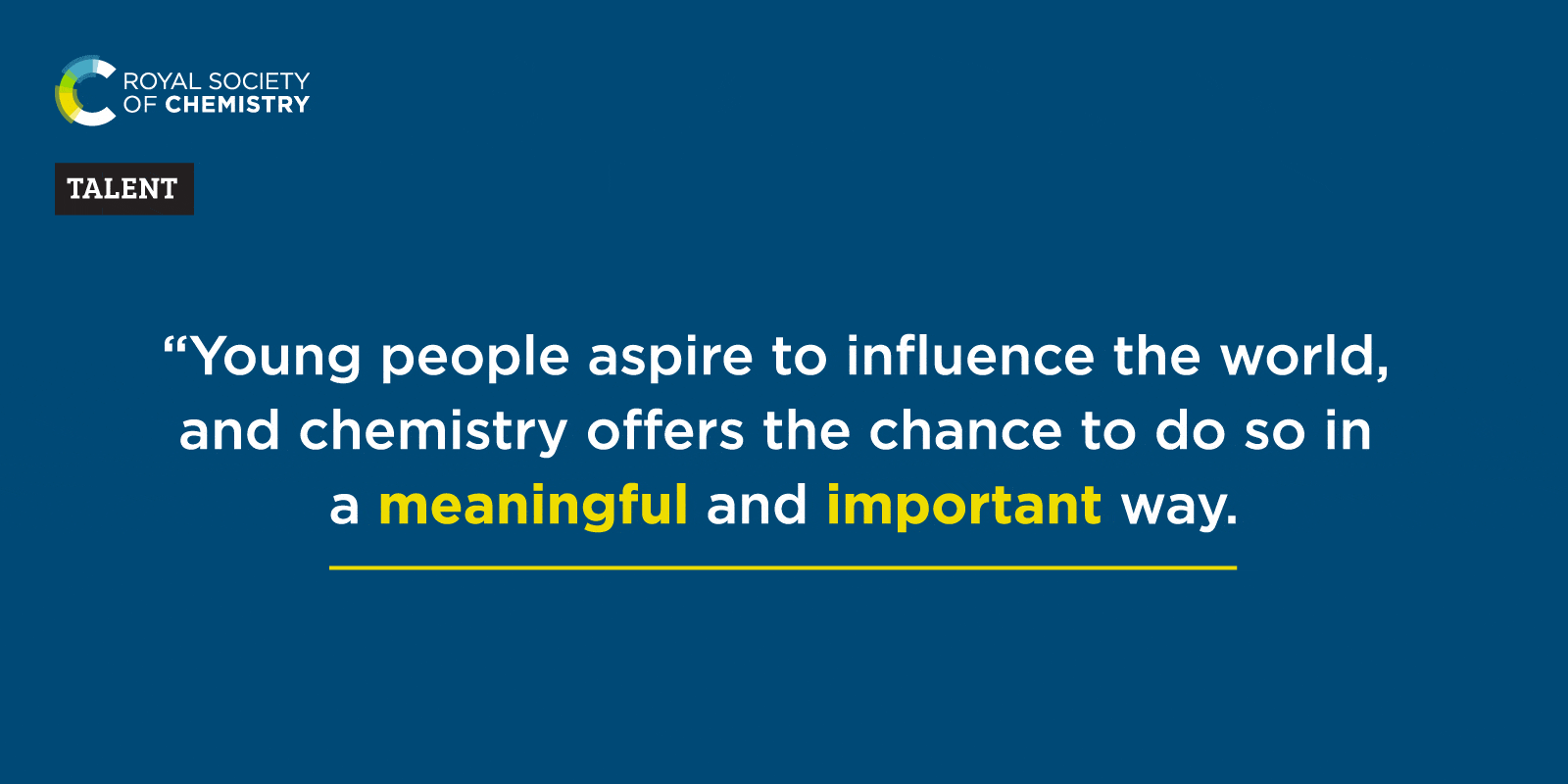Industry leaders’ urgent call for government to keep the UK chemistry talent pipeline flowing

Industry leaders have called on the government and education bodies to help school pupils discover chemistry and its many and varied career paths as UK applications to chemistry courses fall by over 20%.
And the situation could get even worse with new research highlighted by the Royal Society of Chemistry showing only 7% of chemistry A-level students in England intend to pursue the subject or directly related courses after school because most are not aware of the career opportunities it offers.
More than 7,000 English A-level students responded to the ASPIRES2 survey by UCL Institute of Education.

A worrying decline
Since 2015, UCAS figures show the number of UK students applying to study the physical sciences has dropped 16%. While this figure includes those studying astronomy and physics, the most recent numbers available for chemistry specifically show a 21% drop between 2015-20181. This is despite the numbers of students sitting A-level chemistry increasing across the UK2.
Conversely, data on international students applying to study the physical sciences at UK universities has increased by 65% from within the EU and 119% from countries outside the EU between 2010 and 20193.
In response to the findings, Danièle Gibney, Education Policy Manager at the Royal Society of Chemistry, said: “It’s concerning that some A-level students may not understand the opportunities chemistry can offer them, at a point where they’re making crucial career decisions.
“The influx of students from other countries around the world proves young people are still interested in chemistry. The UK’s problem appears to be our inability to provide enough careers advice to help them make informed choices about their further education and career aspirations.
“Chemistry is key to tackling a number of the world’s most pressing problems, from antibiotic resistance to pollution and the need for novel materials to replace plastics. In an era where young people aspire to influence the world, chemistry offers the opportunity to do so in a meaningful and important way.”
Support from and for a crucial industry
An open letter calling on the government, academy trusts and local authorities to take action to improve careers advice, signed by senior figures from AstraZeneca, BASF, and Johnson Matthey, said, "The UK is one of the most important countries in the world for chemical science, but that reputation is intrinsically tied to having a strong pipeline of homegrown talent. That this pipeline looks to be slowing because pupils don’t know what career options come from studying chemistry is a matter of significant concern for a number of sectors deemed crucial to the country’s economy.
"Chemistry is worth at least £50bn a year to the economy and supports hundreds of thousands of jobs – it is a core function in several industries, from business and enterprise to technology, innovation and engineering.
"From finding solutions to climate change and decarbonising transport to finding new drugs or even creating novel materials to herald a new era of technology; chemistry is too important to let slide."
ASPIRES2 in more detail
Qualitative feedback gathered as part of the wider study, which tracked 61 young people from age 10-18, found that most students – and their parents – do not see science as transferable and think it only leads to careers as a doctor or scientist.
Some students, who took A-level chemistry but did not continue with the subject further, felt that they did not have a good sense of what jobs it can lead to.
Chemistry A-level students were also less likely to aspire to careers in technology, with less than 3% of respondents aspiring to work in this field, and are half as likely to pursue a career in business as non-chemistry A-level students.
Professor Louise Archer from the Institute of Education at UCL will release the full ASPIRES2 research in December 2019. She says: “Our research shows that the majority of young people aged 10-18 are not aware that science qualifications are transferable – school science, careers and science organisations could usefully promote a stronger message that science can help keep your options open.
“We also found that young people, even those who enjoy science, are less likely to continue with subjects like chemistry and physics because of the perception that these are ‘difficult’ subjects – and that this is reinforced by schools and exam boards, who have been found to mark more severely in these areas.”
What happens now?
In response to the findings, the Royal Society of Chemistry will launch its own improved careers resources which showcase the diverse options and opportunities available to young people should they choose to continue their studies in chemistry.
It will continue to work with the Gatsby Foundation to support schools to meet the eight Good Career Guidance Benchmarks under the government’s careers strategy for schools in England. All schools are expected to meet the guidelines, which range from having a stable careers programme to understanding the job market, by 2020.
The Royal Society of Chemistry has also committed to funding part of the next phase of the ASPIRES research. A PhD project, by ASPIRES researcher Emily MacLeod, aims to understand why the high percentage of students who aspire to teaching aged 10-18 doesn’t translate into the proportion entering teacher training/teaching profession – and why this situation is particularly acute in the case of chemistry teachers.
Read the open letter in full here.
NOTES FOR EDITORS:
- Chemistry student numbers dropped from 19,325 in 2015 to 15,280 in 2018.
- A-levels results show chemistry on the rise
- UCAS Analysis and Insights, published on Thursday 11 July 2019
